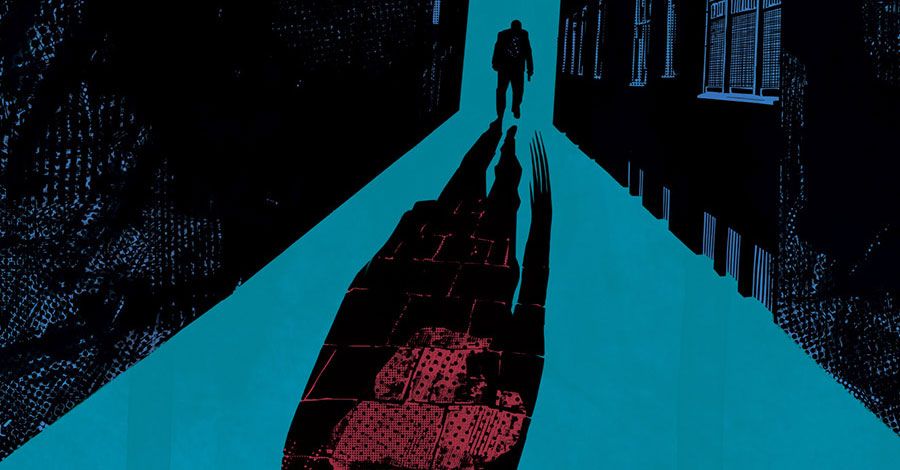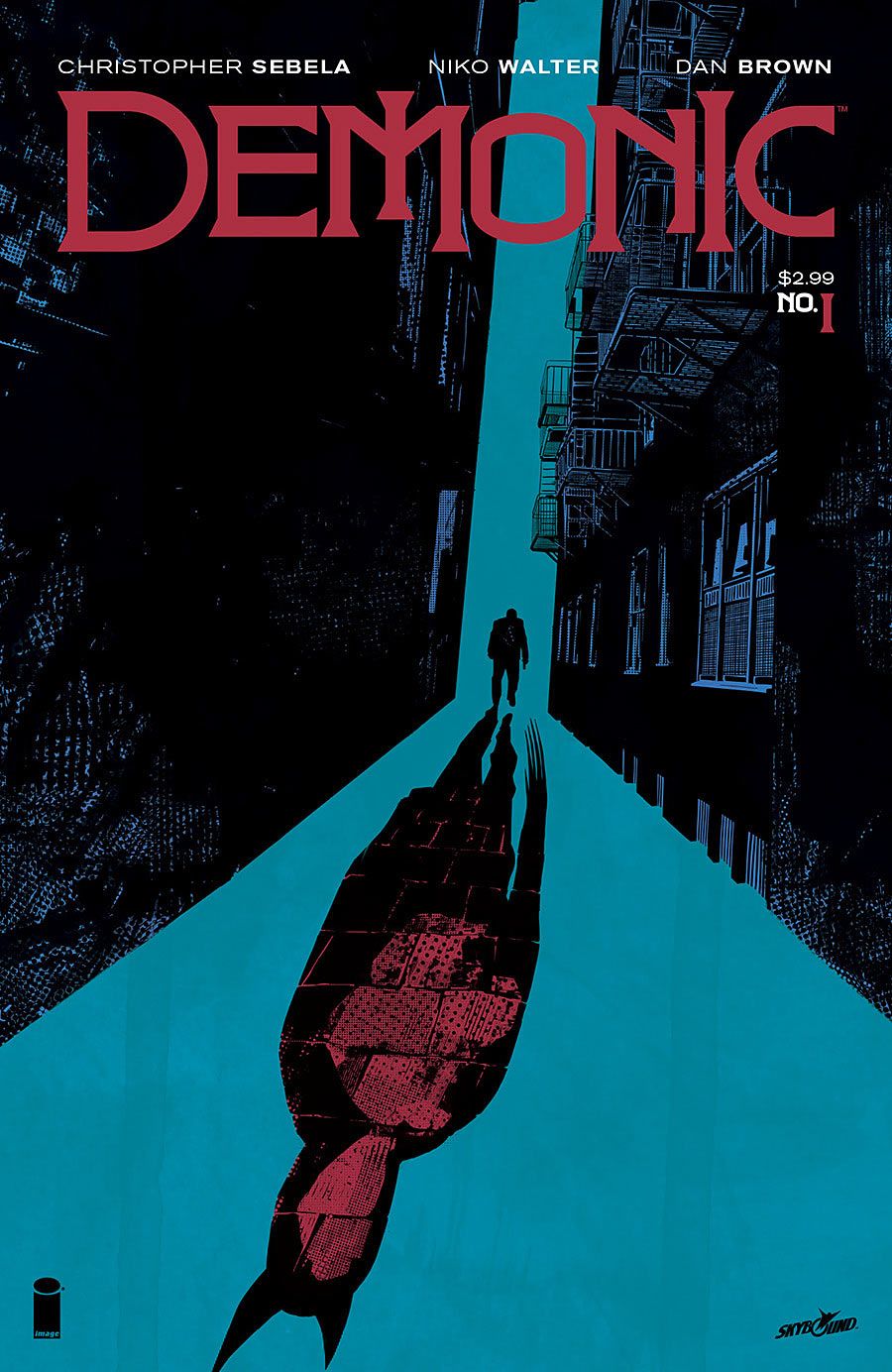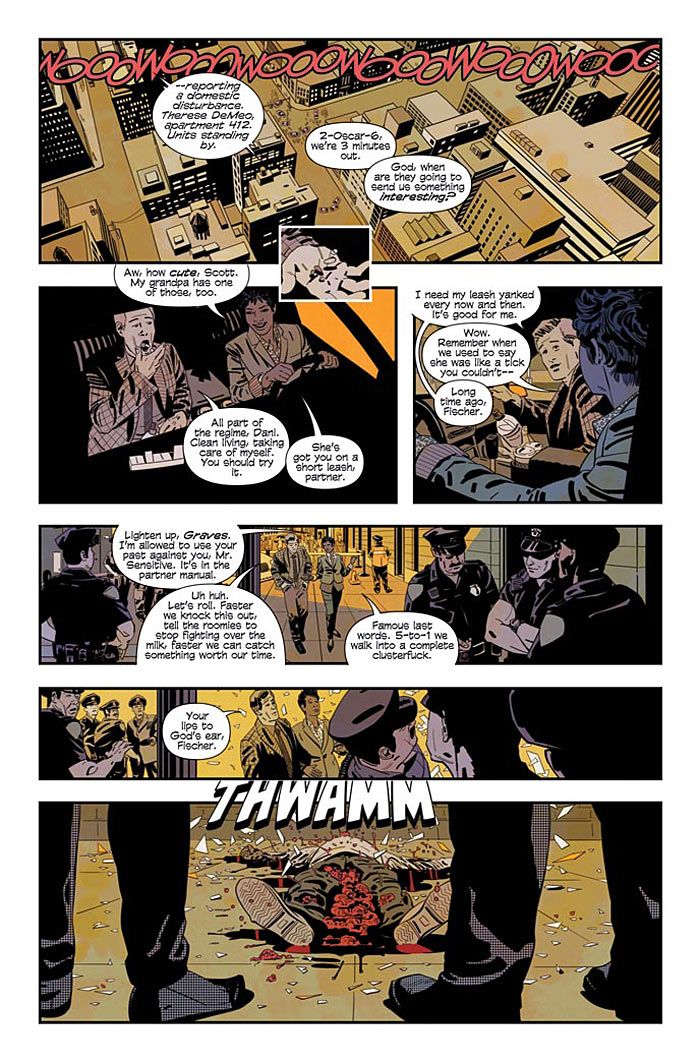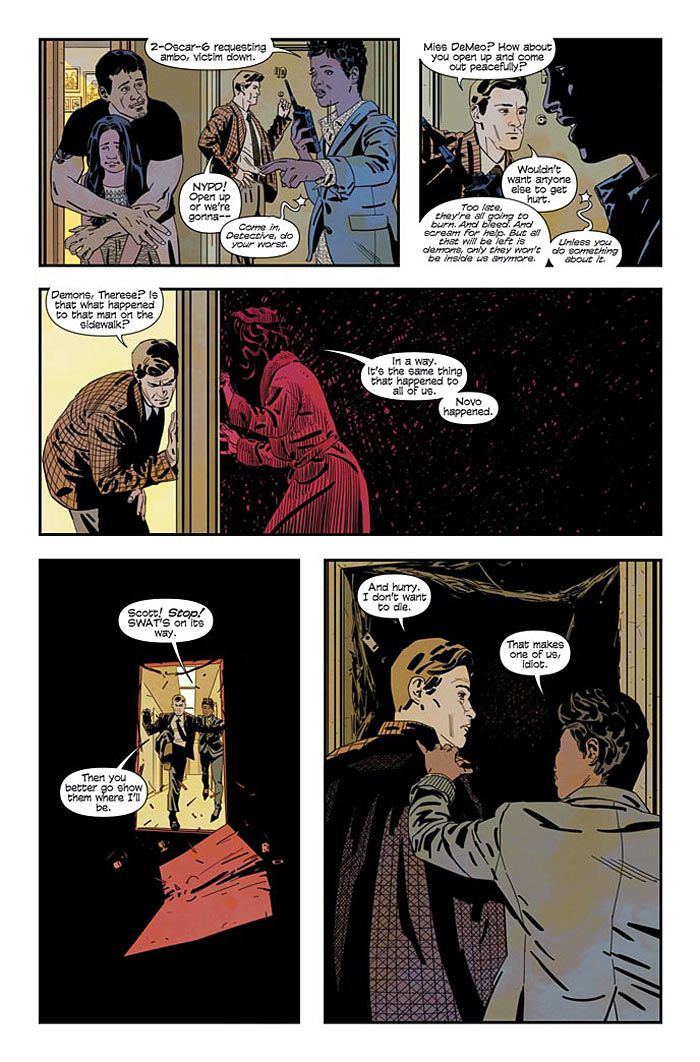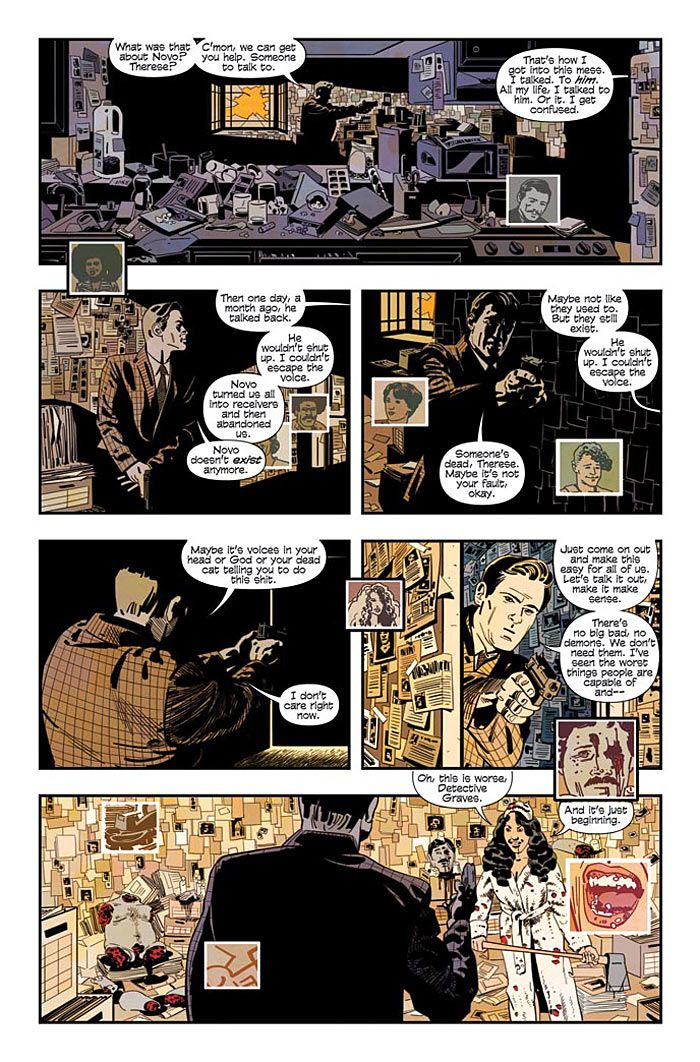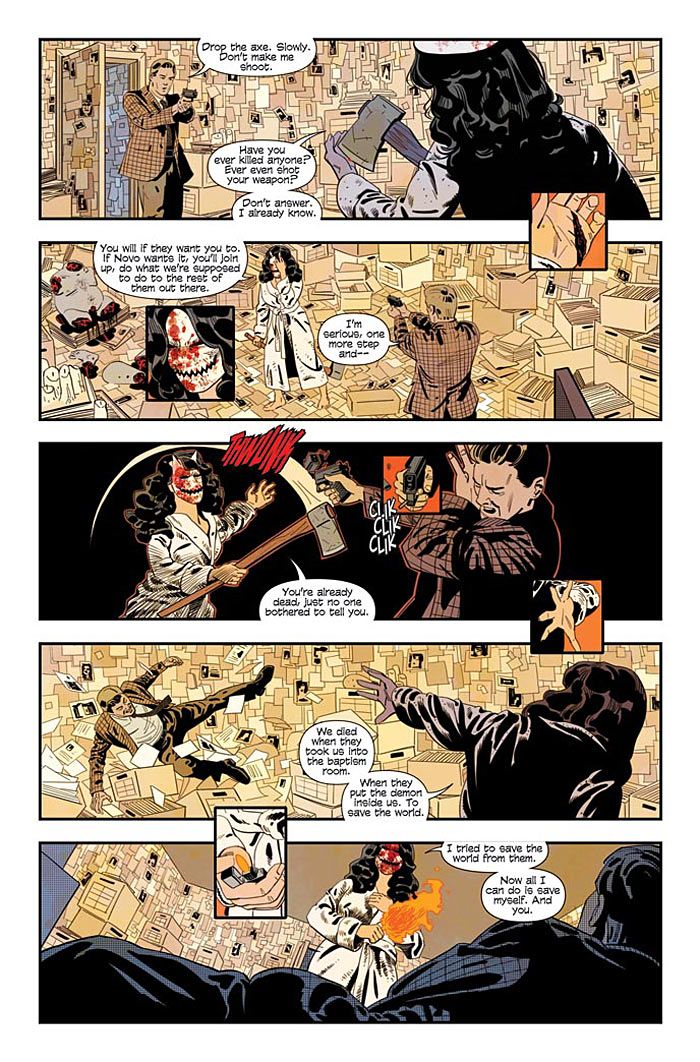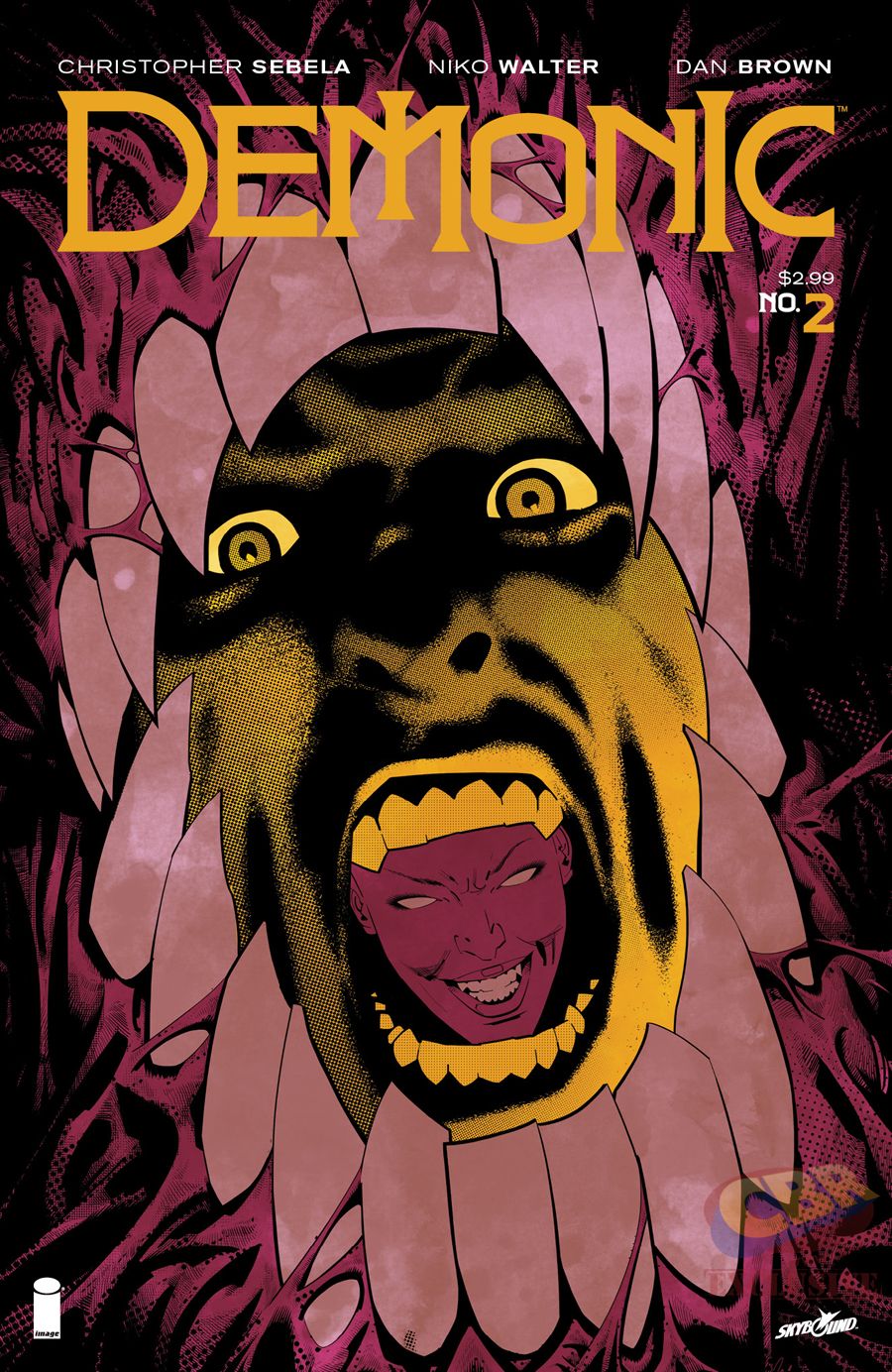Robert Kirkman, already an established horror voice thanks to "The Walking Dead" and "Outcast," is bringing another vision of terror to life with "Demonic." The series, scripted by Chris Sebela with art by Nico Walter and Dan Brown, tells the story of a New York City police officer who happens to be possessed by a powerful dark entity, which he must keep under control at all times.
Exploring themes of corruption, duality, and family, the series promises to be a gory, satisfying ride. Released under Kirkman's Skybound imprint through Image Comics, "Demonic" hits stores in August.The series is a reworking of the concept Kirkman introduced as part of Top Cow's 2010 Pilot Season program.
Sebela spoke with CBR News about his involvement in the story, including the dark bargain Office Graves has entered, the rhythm of writing horror, and what it's like to collaborate with a modern horror icon.Plus, the first look at the cover to September's "Demonic" #2!
CBR News: How did you get on board with "Demonic?" What was your reaction like when you were asked to be part of the series?
Chris Sebela: Back in 2013, Ibrahim Moustafa and I put out our book, "High Crimes," as a digital-only comic through Monkeybrain. We'd set up an email for the book to take letters and do a letter column, and put the address in the notes for the first issue. A few weeks after that issue came out, there was an email from an editor at Skybound saying how much they liked the book, and whether I'd be interested in working with them on something.
At that point, no one knew who I was, or what kind of books I was capable of doing beyond this tiny book that hardly anyone was reading, so just getting contacted by Skybound was insanely validating at a time when I wasn't sure what was going to happen with me and comics. Once we started talking, my editor sent over some ideas they were working on. "Demonic" was the one that interested me the most and we were off to the races.
What can you tell us about "Demonic's" main character Scott Graves, besides the fact that he is possessed?
On the surface, Scott's got it all. He's married to his childhood sweetheart, Jamie, they have a daughter, Lucy. He works as a cop, a detective, one of those noble defender types, trying to save lives and serve justice. But there's only so long a normal guy and his ideals can withstand what the world has to offer before they both get a little tainted. I mean, even before the demon shows up, Scott's haunted several times over by the things he's gone through. When we meet him, he's on the rebound from a bad stretch of road in his life he's trying to put behind him. Back then, he drank too much, cheated on his wife, put his family through hell and got as close to the brink as he could before pulling himself back. Now, he's put the pieces of his life back together and is trying to get them to stick.
When we say Scott is possessed, we mean it in a different kind of way. Scott is owned. He's a piece of property, and Aeshma, the demon inside him, holds the lease. They have a deal between them. Scott will go out and get her all the blood she demands, and she'll keep his family alive. Aeshma gives him some aspects of power to do these things, making it so when Scott puts on his mask, he's a force of nature, doing all sorts of things people could only dream of. There's something almost thrilling about it to Scott, if it wasn't in service of slaughtering people.
When Aeshma shows up, it threatens to destroy everything Scott's struggled against to achieve some kind of normal, happy life. Now he's got to hold this shaky life together while he lives a new, bloodier one every time the sun goes down, when he has to go out and feed his demon.
Are there forces to combat, apart from his internal struggle with the demon? What helps keep him in control of himself?
Besides being surrounded by cops who are looking to take the murderous version of him down, and his family constantly on the lookout for signs that he's backsliding, there's a group out there that's been waiting and watching for something like what Scott has become. The demon in question doesn't just spring out of nowhere, there's very specific reasons that she's bonded with Scott, reasons that explain why he fell apart years ago and why he's struggling to hold it together when she shows up and makes her offer. While Scott tries to stay alive and keep his head together, he's also going toe to toe with the entire NYPD and fighting off this mysterious threat that's bigger and scarier than the idea that he might be crazy.
For Scott, control is super important. He's in recovery, he's already let his life fall apart, so he's on this regimented kick where everything has its place and time. For his job, Scott is used to bureaucracy, which is all about control. When he makes this deal with a demon, there's rules to that too. Scott's signed the contract, he's locked in, but he's forever looking for ways to squeak out of the deal, a loophole he can dive through and go back to his happy life. Aeshma's delighting in controlling Scott and making him do these awful things, feeding on his misery. The whole book is a huge game of power struggles.
It sounds like it could be a sprawling story -- what has your approach been to telling it in just six issues?
It definitely is sprawling. Besides the characters' stories in this arc, there's enough history to them, to the demon and to the city itself that goes back almost 40 years. It's tricky trying to contain all that, and hit emotional moments, and have yards of bloody, violent action in the mix, too. For a book like "Demonic," the rhythm of things felt really important. Most horror stories are slow burns, but we start this one at a jog and just pick up speed as we go, we jump around from all these things and try to give the reader enough puzzle pieces to keep them hooked.
Because there's so much story underneath the book, for me it's about digging just deep enough to get the shape of things, but not memorizing the map. I like stories where you uncover bits and pieces and have to assemble them yourself. Things like that feel more like life, where no one shows up and tells you everything you need to know. You find out certain things and fill in the gaps to make the narrative make sense. "Demonic" is like that, except our narrative has lots more knives and blood.
What was the story development process like with Robert?
Robert wrote the original first issue of "Demonic" back in 2009, and that's what was given to me to read over, and that's the issue that got me interested in trying to tackle this concept. There was a lot of back and forth in the early stages, deciding what stuff we wanted to keep and what we wanted to start over from scratch. The nice thing was, there was no huge rush. Everyone wanted to get things right before we moved into scripting and arting. Once we got it to that place, I went off and wrote the scripts, getting notes from my editor and Robert. It was an incredibly smooth process, all in all. This was my first time flying solo on something like this, and working with everyone at Skybound kind of spoiled me.
How do you get yourself into the frame of mind to write horror? What about this comic scares you, and how are you using that to tell the story?
I've been a horror nerd since I was a little kid. Movies, books, comics, doing a lot of thinking about ghosts and lake monsters in my free time. So getting myself into a horror mindset is pretty easy for me. I'd say it's like shifting from first gear into third, I think. I don't know to drive manual, so that may be an awful metaphor. Horror just makes sense to me. I've immersed myself in it, even going so far as to turn my own life into a horror movie at times, so it's never a big leap to make.
As far as "Demonic" goes, I think what appealed to me when I first read over it was a nightmare I've had on and off for years. A nightmare where I accidentally kill someone. The really terrifying part of the nightmare is that I get away with it, but I'm constantly worrying that any second the ominous "They" is going to find out and come get me. It's that waiting for the shoe to drop, the stories that repeat over and over in your head, turning over the different ways this could have gone. That was the premise of "Demonic" from Robert's original first issue that stuck hard with me. Living with yourself when you've done these terrible things, sometimes for what you tell yourself are the right reasons, being surrounded by people who could figure out who you really are at any moment. I really focused on the dread and the mental sweat that comes with keeping a secret like this, and knowing that you're powerless to stop it from happening again and again every night.
The original "Demonic" one-shot was released in 2010 -- was continuing the series always part of the plan?
"Demonic" originally was part of Top Cow's Pilot Season. It, and four other books written by Robert, were competing to see which one went to series. "Demonic" didn't win, but like all the other first issues that were part of the competition, there was clearly a lot of stuff that got set up that never got to be followed through on. I think there was the hope that it'd be revived at some point.
How did Niko and Dan become attached? And what has the creative process been like with them?
My editor did a portfolio review of Niko at a show while I was writing the book and we both really liked his stuff at first glance. But when we saw his pages, it was pretty exciting. Comics is weird because sometimes you're writing for an artist who only exists in your head and it's hard to play to the strengths of a fictional character. So when Niko came on board early on, it really helped me figure out how to tell the story that worked with his style, which has a lot of inset and tiny panels, little quirks that I love about his style. Getting pages from Niko always transformed things for the better, and I tried to write to match that.
Finding a colorist is always an uncertain process, trying to find two people who can work that closely together, each one of them retaining their own voices. There can be a lot of trial and error before you find someone who fits. With Dan, it was immediately a great match. Dan's got a ton of variety in his body of work, he's worked on so many books, but he got right into sync with Dan's pages and really made them his own. I think we mostly stood back and let him do his thing.
"Demonic," by Robert Kirkman and Chris Sebele, Chris Sebela with art by Nico Walter and Dan Brown, arrives in August.

